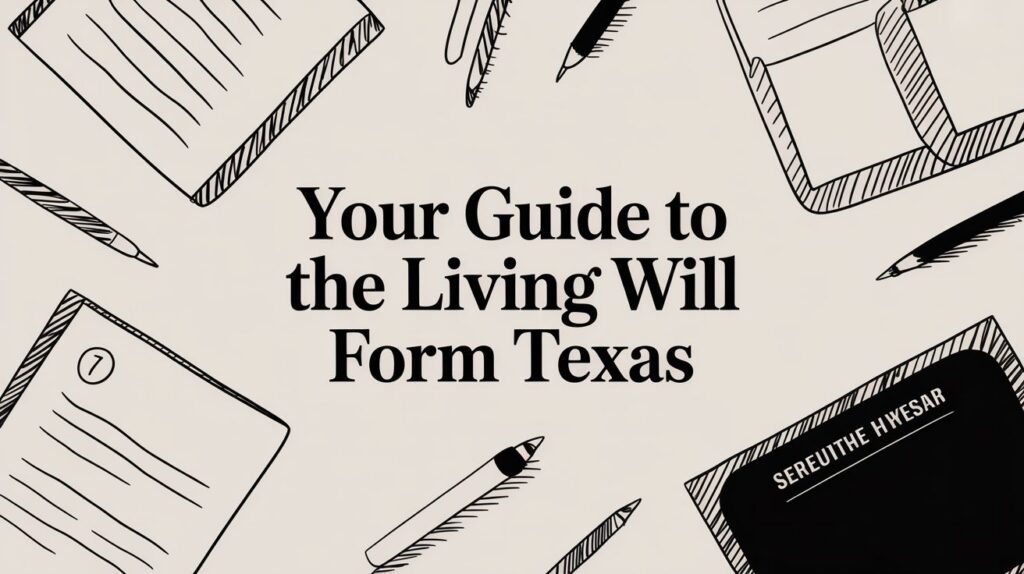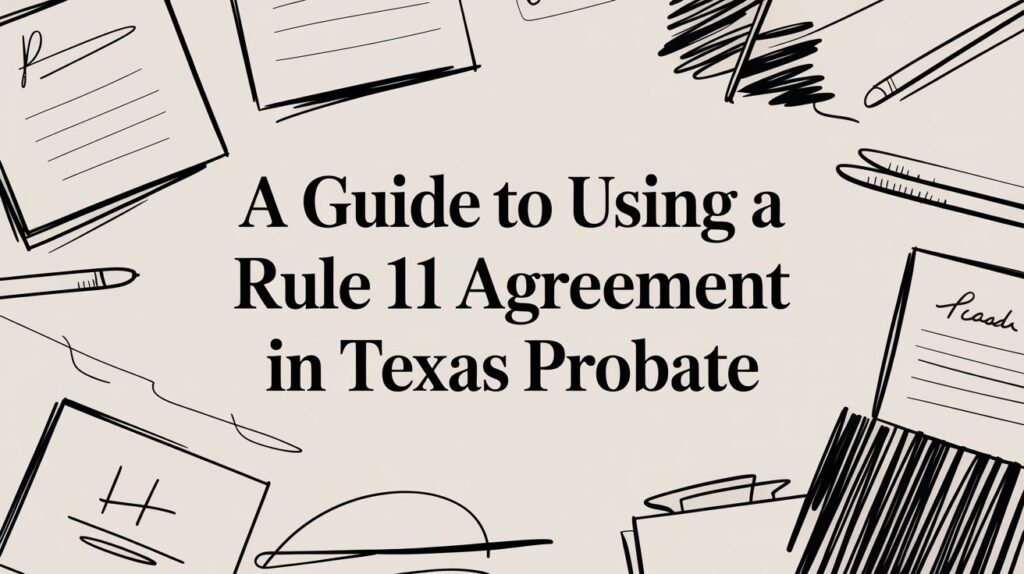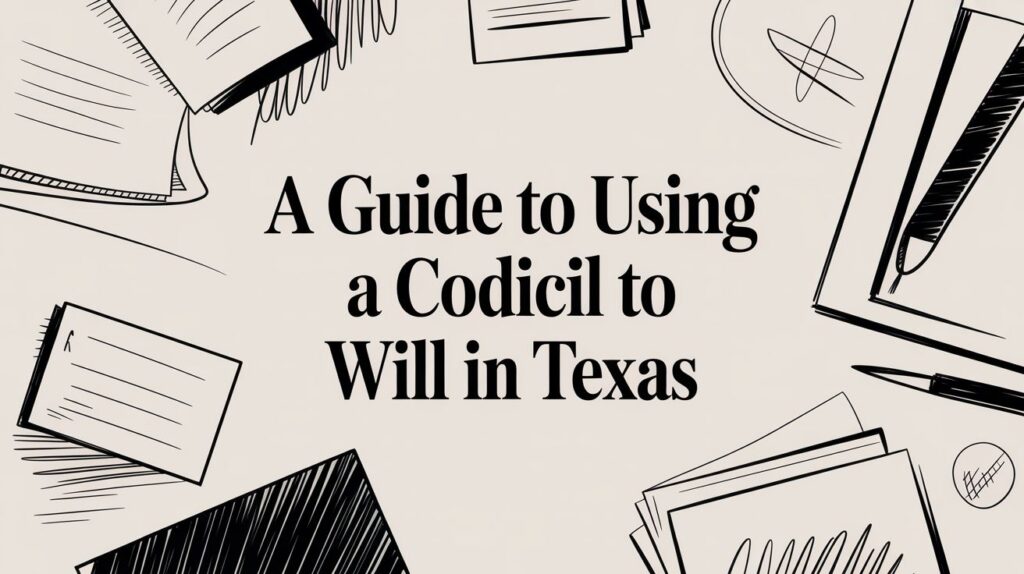If you’re navigating probate for the first time, one of the most confusing parts is figuring out what kind of notice—or citation—is required. You’ve probably asked yourself at some point: When is citation not needed probate Texas? It’s a valid question, especially if you’re trying to avoid delays, reduce legal costs, and simplify the court process.
Citations play an important role in Texas probate. They notify heirs, creditors, and other interested parties that someone has initiated a probate case. While that’s often necessary, there are exceptions. One of the most notable is the Muniment of Title proceeding, where citations usually aren’t required. In these cases, you can often probate a will without sending formal notice to anyone.
This guide explores the circumstances when citations aren’t needed in Texas probate. We’ll focus specifically on Muniment of Title, a powerful legal tool that helps families save time and money. Throughout, we’ll share real-world examples from Texans who’ve used this approach to handle estates efficiently and with less stress.

Understanding Probate Citations in Texas
Before we look at when citations aren’t needed, it helps to understand what a citation means in probate. In Texas, a citation is a legal notice issued by the court to inform involved parties that someone has filed a probate case.
Depending on the type of case, the citation may go to:
- Heirs and beneficiaries
- Creditors
- Unknown parties
- The public (via newspaper notice)
These citations give interested parties the chance to appear in court and challenge the probate if needed. Skipping this step without legal grounds can result in serious issues—including the court rejecting or dismissing the case.
That said, some types of probate don’t require citation at all.
When Is Citation Not Needed Probate Texas?
So, when is citation not needed probate Texas? The most common answer: when you’re pursuing a Muniment of Title.
What Is a Muniment of Title?
Under Texas law, Muniment of Title is a simplified probate option. It allows a court to recognize a valid will without appointing an executor or requiring full estate administration. Rather than settling debts or distributing personal items, you’re asking the court to accept the will and authorize transfers of property.
In essence, the court treats the will itself as legal proof of ownership. Families use this process to update real estate titles and other records without going through a full probate proceeding.
Legal Basis: Texas Estates Code Section 257
Texas Estates Code Section 257 provides the legal framework for using a Muniment of Title. This section outlines specific conditions that must be met before the court will admit a will using this streamlined process.
Requirements for Muniment of Title in Texas
To qualify for a Muniment of Title, the estate must meet the following conditions:
- The decedent left a valid will.
- No unpaid debts exist, except those secured by real property.
- Formal estate administration isn’t necessary.
- The will meets all requirements for legal validity.
Courts look closely at these conditions before granting approval, and even one missing element can disqualify the estate. The goal is to confirm that there’s no ongoing financial risk or reason for court involvement beyond validating the will.
Once these criteria are met, the court may approve the Muniment of Title request without requiring formal citation. Because no executor is appointed, the legal process doesn’t involve notifying heirs or creditors through standard probate channels. This allows families to resolve the estate quickly without the burden of court-mandated communication.
No Executor = No Citation
In most probate cases, someone asks to become the executor or administrator, which triggers the requirement for citation. In a Muniment of Title case, no one receives court authority to manage the estate. That’s why Texas courts often skip the citation process entirely for these cases.
Instead of managing estate assets, the applicant simply asks the court to acknowledge the will and allow for asset transfers. Since no fiduciary is taking control of property, there’s no risk of mismanagement that would require oversight or legal notice.
With no executor to appoint and no debts to resolve, the case doesn’t demand the same level of oversight or notification as traditional probate. The process is much more administrative than adversarial, making it a fitting option for clean, uncontested estates.
Real-Life Example: Saving Time with Muniment of Title
Consider Rosa, a Houston resident whose father passed away, leaving a will that named her the sole heir to his home—the only asset in his estate.
Rosa’s attorney recommended using the Muniment of Title process. Since her father had no debts and no other assets, the court approved the will without issuing any citations. Within six weeks, Rosa used the court’s order to transfer the deed at the county clerk’s office.
She never had to notify family members formally, publish notices, or appoint an executor. For Rosa, the process was efficient, affordable, and respectful of her time and loss.
When Citation Is Still Required (Even in Probate)
Not all probate cases qualify for this shortcut. If the estate doesn’t meet the Muniment of Title criteria, the court will require formal probate, and citation becomes necessary. Judges want to ensure that everyone with a potential interest has the opportunity to participate. This protects the court’s final ruling from being challenged later on procedural grounds.
Situations Where Citation Is Required:
- The estate includes multiple debts or unresolved financial obligations.
- No valid will exists.
- The will’s language is vague or contested.
- Heirs dispute how the property should be divided.
- Someone files to be appointed executor or administrator.

When any of these conditions apply, formal probate becomes essential to manage and resolve potential disputes. Failing to follow the required steps could result in delays, additional hearings, or even the reversal of the court’s decisions.
Even seemingly straightforward cases can trigger citation requirements. Any situation that introduces risk or potential conflict usually demands formal notice and court oversight. These requirements ensure transparency, legal fairness, and the opportunity for all interested parties to raise objections before the estate is distributed.
Citation serves to protect due process for all parties. Courts use this tool to avoid future legal challenges based on improper notification. In contested or complex probate cases, citation is not just a formality—it’s a legal safeguard that helps preserve the integrity of the entire process.
Practical Benefits of Skipping Citation
Eliminating citation from the probate process offers more than legal efficiency. For grieving families, it reduces stress and delays during an already emotional time. Without citations, there’s no need for newspaper publications or locating distant relatives.
Benefits of avoiding citation:
- Faster processing times
- Lower legal fees
- Less courtroom involvement
- No public notices or required service
Speed is critical when property needs to be sold or transferred quickly. In many Texas counties, especially rural areas, the Muniment of Title process is favored because it minimizes red tape. Some families complete the entire process in less than two months, avoiding the long delays of traditional probate.
Common Mistakes People Make When Trying to Avoid Citation
Although the Muniment process seems simple, it requires careful handling. Missteps can cause the court to deny your request—or worse, require you to start over with full probate.
Mistake #1: Attempting Muniment Without a Will
Texas law only allows this process when there’s a valid, written will. If the decedent died intestate (without a will), citation and full probate are unavoidable.
Mistake #2: Ignoring the Estate’s Debts
People often assume small debts won’t matter. However, even minor unresolved debts can disqualify an estate from the Muniment process.
Mistake #3: Filing in the Wrong County
You must file in the county where the decedent lived or where the property sits. Filing elsewhere may result in delays or dismissal.
Mistake #4: Submitting Incomplete Affidavits
Affidavits must clearly state that the estate qualifies for Muniment of Title. If the information is vague or missing, the court might require a hearing—triggering citation.

Can You Use Muniment of Title for Property Outside Texas?
Generally, Muniment of Title works only for assets located in Texas. For out-of-state real estate, you’ll need to initiate ancillary probate in the state where the property is held.
Still, some financial institutions outside Texas accept a Texas probate order—especially when accompanied by supplemental affidavits. Check with each institution before assuming the order will be honored.
Final Thoughts: When Is Citation Not Needed Probate Texas?
So, to return to the question: When is citation not needed probate Texas? The answer lies in the Muniment of Title process—a tool that allows simple estates to skip the time and expense of full probate.
This method works best when there’s a clear will, no debts, and no need for formal estate management. If used properly, it allows heirs to transfer property without triggering the citation process or the delays that come with it.
Key Takeaways:
- Citation is usually required unless Muniment of Title applies.
- No executor = no citation, as long as debts are resolved and the will is valid.
- Muniment simplifies probate, reduces court involvement, and saves families time.
- It applies only to Texas property and requires careful documentation.
- Consulting a local probate attorney can prevent missteps and delays.
If you’re unsure whether your case qualifies, speak with a Texas probate attorney. A single consultation can help you avoid unnecessary filings and get the court’s approval the first time. In probate, preparation matters—and the right approach can save your family months of frustration.








